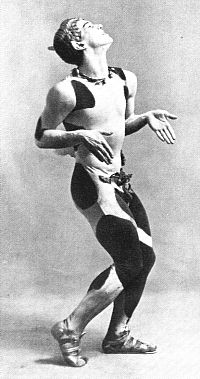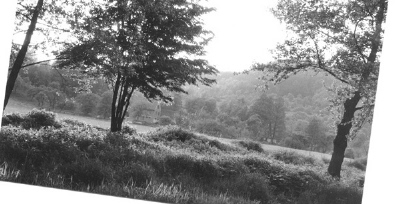
/S/OME-THING ELSE
Regarding the Figure 8, the spiraling prose and 'time signatures' of Proust's Remembrance of Things Past, the nature of the 'nature' embedded in works of art, architecture, music and film, and the appropriation of Van Morrison's song "Glad Tidings" by the 2004 season finale of The Sopranos ...

PRECIS / SKATING ON THIN ICE - "Within the swirling narrative of Proust’s A la recherche du temps perdu may be found the mysterious, sinuous figure of the proverbial Figure 8 (figura serpentina), a sign for/of Infinity and Eternity, at once, or Ourobouros biting (off) his/her own tail. Yet this sign is also the sign of the printed page, of memory (with its inversions, dissociations, dislocations, and falsifications), and of ‘landscape’ in its most archaic sense, the latter most especially when it comes to reside in the literary imagination, leaving behind its impress, so to speak, or its trace. If the Figure 8 represents the simultaneous presentation of both the recto and verso of Time (always capitalized in Proust to signify ideal time), various works of art (music, architecture, cinema, and literature) carry within them this self-same duplicity; that is, the exceptional work of art as icon (passage to somewhere else) carries the signature of both an inner and an outer time. Actual things are transposed in such works to simulacra or virtual ‘landscapes’ (a virtual ‘nature’) situated as a work of art in time, but also moving ‘in and out of time’ by way of inflection, allusion, and metaphor. It is this virtual ‘nature’ that is, in fact, irrepressible -- despite all claims otherwise by types of formal expression and experimentation (forms of avant-garde reduction) that claim to eliminate anything whatsoever not specific to its own purpose, anything extraneous, or anything intertextual [...]"
 To proceed, cliquez ici (RTF / 64 KB) ...
To proceed, cliquez ici (RTF / 64 KB) ...
OR, PENDING ALL THAT - See William Wordsworth: Or, "Those conjunctions of the numinous and the recalcitrantly matter-of-fact that make him most idiosyncratically himself ..." (Seamus Perry) ... And, then again, John Hamilton Reynolds mocking the poor, old right-turning horse upon the publication of Wordsworth’s Peter Bell (1819): "To deduce moral thunder from buttercups, daisies, celandines ..." ... in Seamus Perry, "The Little Horrorshow", TLS (January 21, 2005), p. 5 ...
